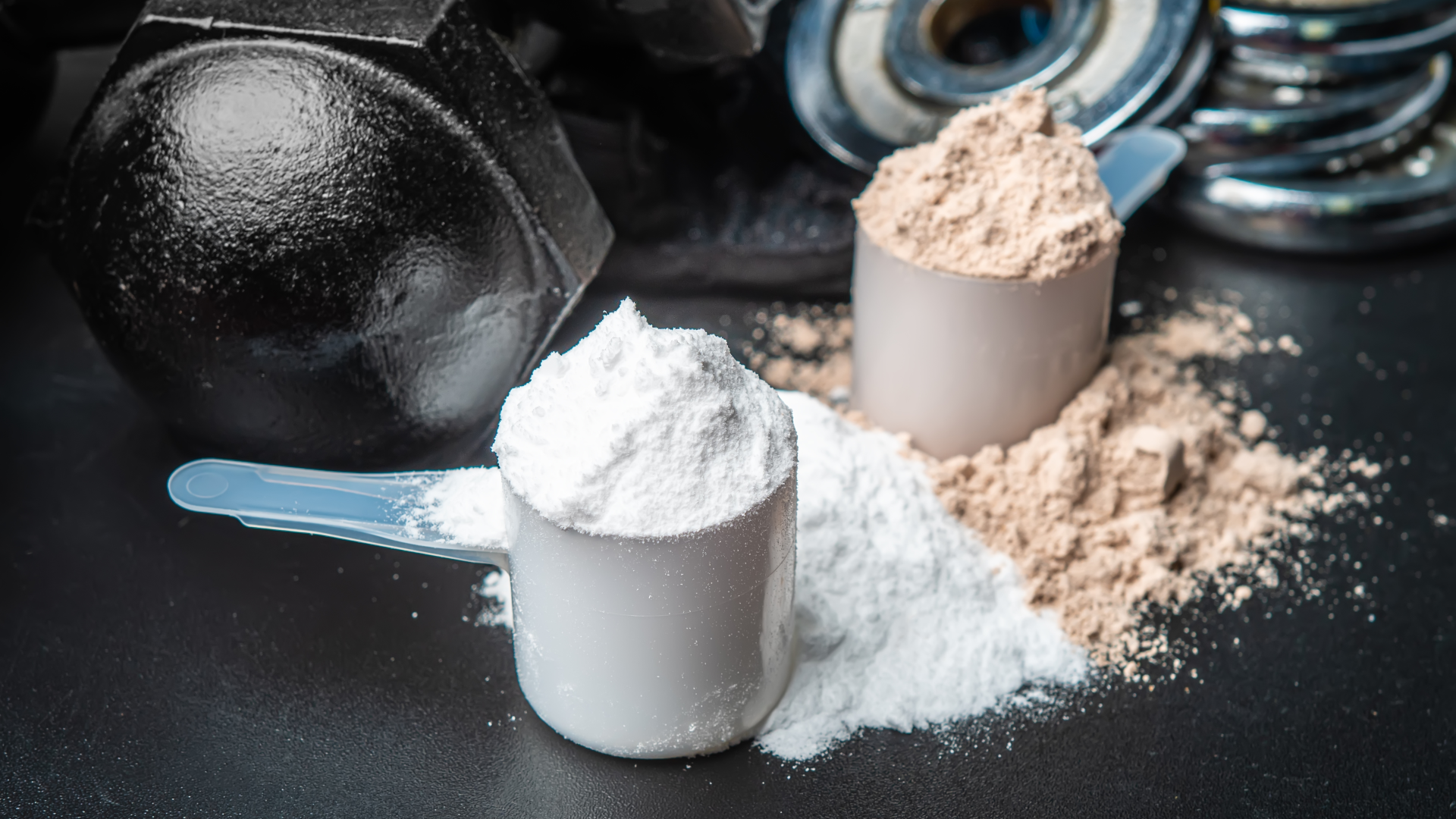Whey is the way!
But what if it’s not your way?
While whey protein powder is recognized as the highest-quality supplement on the market, it isn’t suitable for everyone.
And even if you can’t take it for whatever reason, you still want to reap the rewards and gains of your gym sessions.
Let’s look at some of the best alternatives to whey protein powder.
What is whey protein powder?
Whey protein powder is known as an animal-based protein as it comes from cow’s milk. It is one of two proteins derived from the cheese-making process, the other being casein protein.
Numerous supplements can help you increase your protein intake, but whey protein is widely considered the highest quality source of protein. There are a few reasons for this:
- Whey protein powder contains a high protein-to-calorie ratio
- Our body is better at digesting animal proteins than plant proteins, meaning that the protein in the supplement has a higher level of bioavailability. That means our bodies can ‘use’ the protein better for muscle growth and recovery.
- Whey protein powder also has a higher concentration of essential amino acids than plant proteins, particularly those responsible for kickstarting muscle hypertrophy (leucine, isoleucine and valine).
Why would I want a whey protein powder alternative?
Whey protein powder isn’t suitable for everyone, and there are a few reasons you may need to try alternatives:
- You have trouble digesting whey protein shakes.
- You have lactose intolerance.
- You are following a vegan diet.
- You get lots of protein in your diet and don’t feel you need it.
The nine essential amino acids
When choosing a whey protein alternative, it is important to consider the amino acid makeup of the supplement. Amino acids are the building blocks of proteins, and while we can synthesize most of them, we need to get nine essential amino acids from our diet. 
Whey is a complete protein, meaning that it contains all nine of these essential amino acids. Not all whey protein alternatives are complete proteins, which is something to consider before you purchase.
Whey alternatives: plant protein powder options
The most common alternative to whey protein is plant protein; these are suitable to vegans and those who are lactose intolerant. There are a variety of plant protein powders that have different tastes and different nutritional values.
Some are complete proteins, such as soy protein isolate, hemp protein powder, and pea protein powder (although they don’t have as good an essential amino acid makeup as whey).
Others such as brown rice protein powder, don’t have all nine essential amino acids. You can still get great results by using incomplete proteins; you just have to ensure you are getting protein from various other sources.
Egg protein and beef protein powders
If you want to enjoy the benefits of animal-based proteins but can’t digest milk, then you can try egg white and beef protein powder.
Egg white protein powder has a high bioavailability and is naturally low in fat and carbohydrates. It also has a high concentration of branched-chain amino acids (BCCAs).
Beef protein powder, like egg, is a complete protein source. It blends easily and is a good source of iron. It is naturally free from the most common allergens, including dairy, nuts, gluten, soy, etc.
Casein protein powder
Some people who aren’t lactose intolerant still struggle with digesting protein powders, including plant proteins. If you fall into this category, then give casein protein powder a go!
Casein powder is the other protein derived from milk. It is a high-quality, slow-release protein and it is known as the ‘bedtime protein’ because it doesn’t tend to disrupt your sleep with bathroom breaks.
Casein protein prevents overnight muscle loss, which can result from the muscles becoming starved during your last meal. It is also an excellent recovery aid.
Creatine
Consider creatine if you already get enough protein in your diet but still want to use a supplement that can improve muscle growth. A high-protein diet and creatine supplements are powerful ways to supercharge your workouts and encourage optimum muscle hypertrophy.
You can find more details in our blog post: Creatine vs protein powder; Which is better?
It can also be taken with protein powder.
Food-based whey protein alternatives
Of course, you don’t actually have to buy any supplements at all! It is possible to get all the protein you need from your diet. It can be challenging, however, and takes careful planning.
Here are some of the best high-protein foods you add to your meal plan:
- Chicken
- Tofu
- Red Meat
- Eggs
- Beans
- Chia Seeds
- Soybeans
- Nuts (especially almonds)
- Nut butter
- Tuna
- Cottage cheese
- Lentils
- Greek yogurt
- Quinoa
- Salmon

The best alternatives to whey protein powder
Finding the best alternative to whey protein powder depends on three things: your allergies, your dietary choices and your lifestyle. If you are lactose intolerant, beef and egg white protein are brilliant options. Vegans should opt for high-quality plant-based proteins such as soy or hemp.
Those of you who get plenty of protein in your diet might not need a protein supplement, so give creatine a try for extra muscle growth power.
Finally, some of us just need help to digest protein powders altogether, despite having no specific intolerances. In this instance, casein protein powder might be the one thing our digestive system can handle!
Whichever one you choose, make sure you buy from a trusted brand, and check the labels to avoid products with lots of filler ingredients.
Happy lifting!



